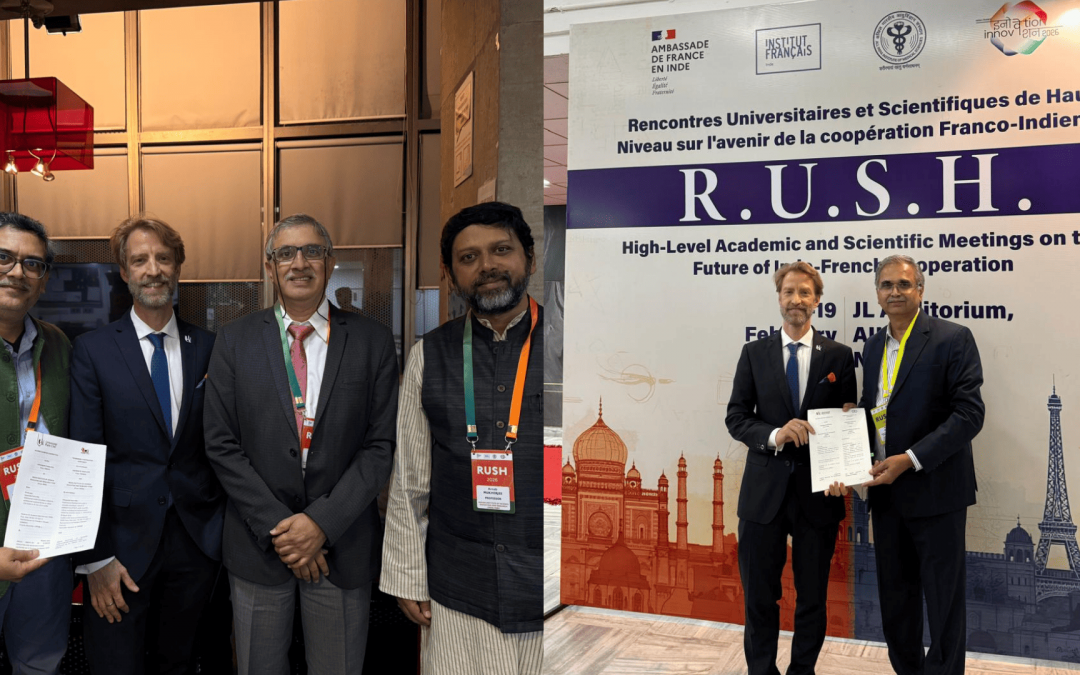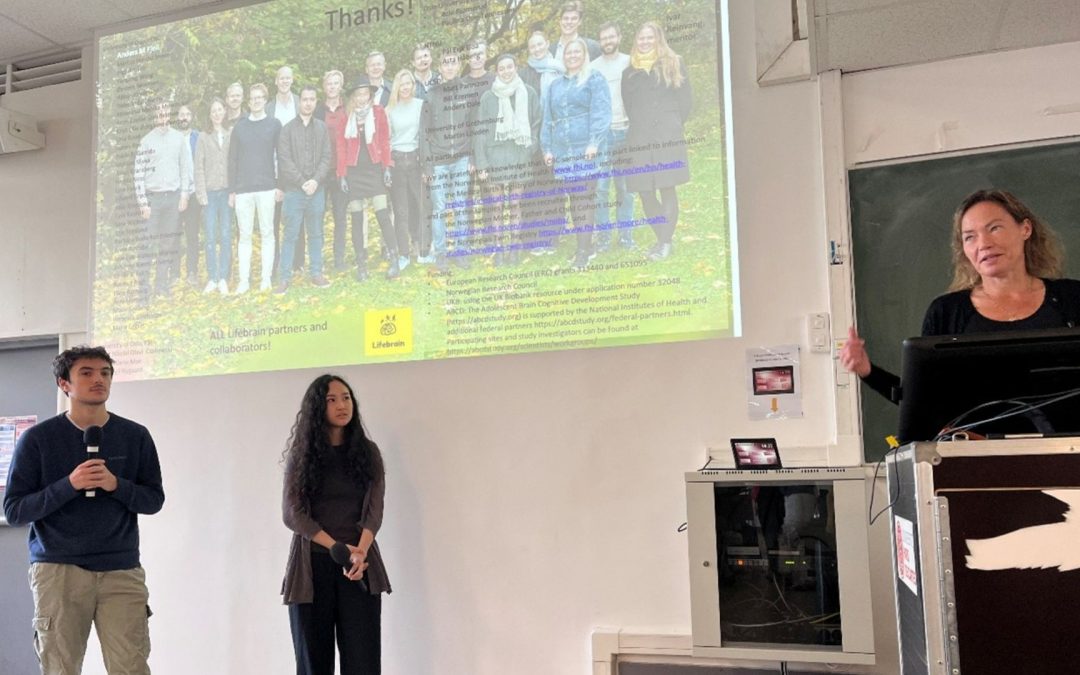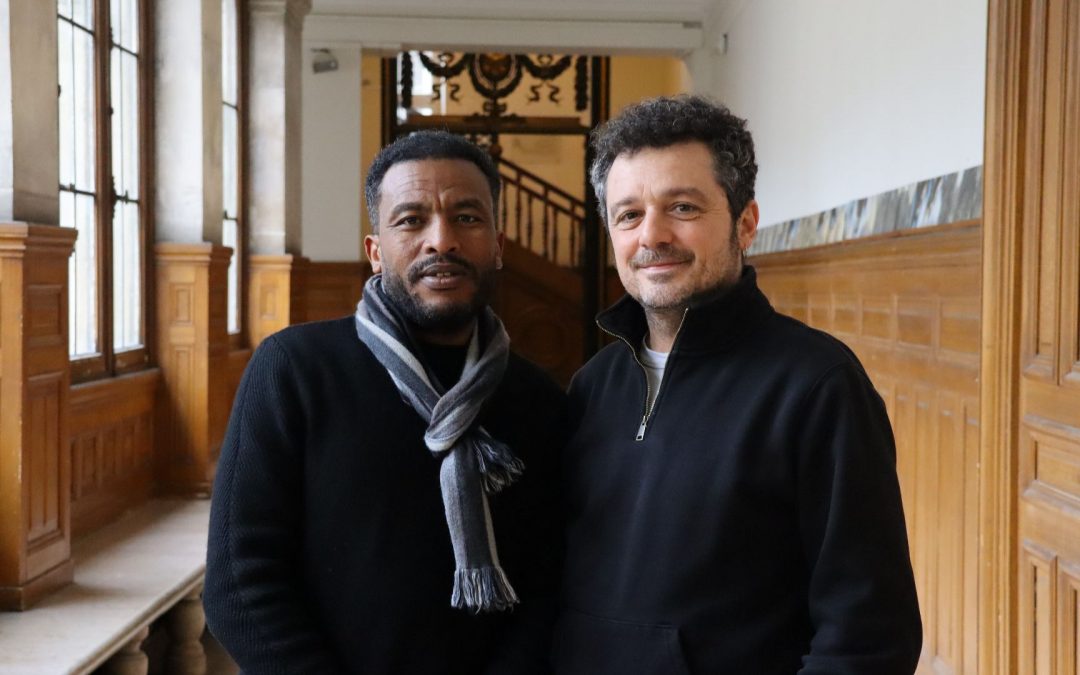Every year, Université Paris Cité offers its scientific community the opportunity to invite and host peers through the international guest researchers programme. A selection campaign is organised annually in the spring, enabling the university to host international researchers for collaborative projects. Their stay will be financed by a research allowance from the institution.

The Programme
The Guest Researchers Programme is launched each year in March. The application and selection process takes place from March to June. The host must be a teacher-researcher or researcher from Université Paris Cité. For 2022, the invitation period is closed. The first guest researchers will arrive over the coming days. The new campaign for the year 2023 will be launched in March.
The guest researcher is hosted and incorporated into the institution’s teams and laboratories. The average period is between two weeks and two months. The stay is typically based on the academic calendar, either between January and July, or in the fall, from September to December of the calendar year following the application submission. Due to the pandemic, the programme was impacted last year, however it is expected to continue in 2022.
Objectives
The programme’s objective is to foster the implementation of specific partnerships at the initiative of the university’s components and laboratories, including the IPGP. All research collaborations, irrespective of the geographical area, will be considered in relation to their relevance and benefits for the institution.
Communication Campaign Launch
The Strategy and International Relations Office, who runs the annual guest researcher campaign, and the Communications Department seized the opportunity to showcase it by proposing a communication campaign through a series of testimonals called, “Guests and Hosts, An International Collaboration United for Research”.
The campaign involves several departments at Université Paris Cité, notably the welcome desk dedicated to guest researchers, international cooperation and talent development, communication and the audiovisual teams. The aim is to make the profiles known throughout the entire university community and to promote the programme, which is sometimes not well known.
Over the course of 2022, starting in February, a series of portraits in the form of interviews between researchers and their guests will be launched. They will be featured in various formats either an article, video, or podcast. Several communication channels will be used to disseminate the portraits ; in particular the university’s website, newsletters, social networks, Youtube channel as well as through Circle U. if the researchers are within the alliance.
For more information
Contact
International relations and Strategy Office
Grands Moulins Campus
Bâtiment des Grands Moulins – Aile A – 2e étage
5 rue Thomas Mann Paris 13eOdéon Site
85 boulevard Saint Germain Paris 6ewelcomedesk@u-paris.fr
Read more

The Indian Institute of Science Education and Research in Pune and the Indian Institute of Technology in Bombay: UPCité’s first partners in India.
Antoine Kouchner, Vice-President of Strategy and International Relations at Université Paris Cité, travelled to India for the official visit of the President, Emmanuel Macron, to the High-Level Scientific and Academic Meetings (RUSH). In this context, UPCité...
read more
International Day of Women and Girls in Science: celebrating the women who push research forward
February 11 was the International Day of Women and Girls in Science. On this day, Université Paris Cité reaffirms its commitment to the equality between men and women and celebrates the journey of the women who advance research. Between celebrating our heritage and...
read more
INC Day 2025: an international scientific day dedicated to neuroscience
The Neuroscience and Cognition Institute of Université Paris Cité (INC) organized a new edition of the INC Day, focused on neurodevelopmental trajectories. A key partner of the event, the Graduate School Neuroscience invited its first year and second year master...
read more
Abraha and Pierre: A Friendship to Preserve the People’s Memory of War
In Paris, two historians’ paths crossed. One had just arrived from Ethiopia, carrying notebooks filled with daily observations written during the war in Tigray. The other, based in France, is a specialist of Ethiopian modern history. From this encounter, a partnership...
read more